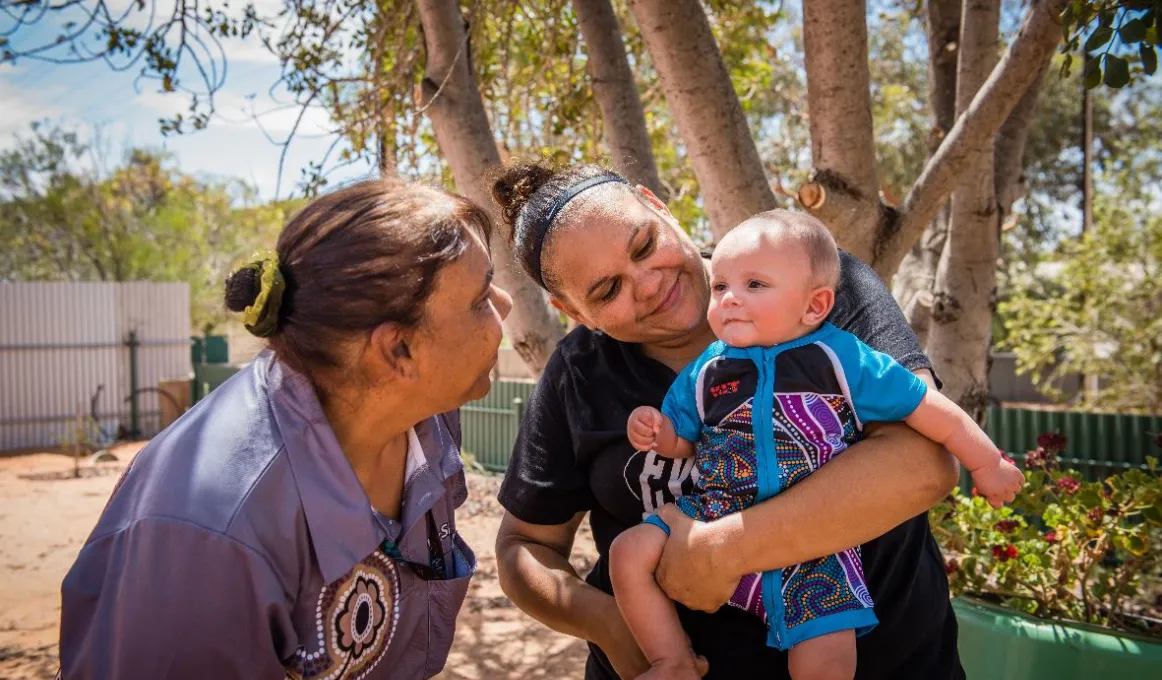Pika Wiya (Sickness No) say the mums and bubs of Port Augusta

The Pika Wiya Health Service in Port Augusta is making the 715 health check a regular event for everybody in the local Aboriginal community.
The Port Augusta community are passionate about helping their mums and bubs stay healthy and strong.
The words, Pika (sickness) and Wiya (no) come from the Pitjantjatjara language, one of the many Aboriginal languages spoken in the local area. It’s a fitting name for the Aboriginal community controlled health organisation that has been helping locals stay free from sickness for nearly 50 years.
At Pika Wiya Health Service, the annual 715 health check is helping residents understand and better manage their health. The local service runs a range of support programs, from birth to parenthood, which includes the 715 health check.
The Kinderling’s program, from birth to 6 years, provides incentives to encourage mums and bubs to undertake a 715.
Amy Walters runs the program.
‘715 health checks on our babies are very important. It gives us a benchmark on where they are at birth and makes sure they're growing healthy and meeting development milestones throughout their childhood,’ Amy said.
’Women are busy, so we look for ways to help encourage mums to bring their bubs in for the 715 health check. We give them or their babies free clothing - we have little onesies, t-shirts, dresses – the mothers love the dresses!’
‘While they’re here, we talk to the mums, making sure it's a safe environment for them to come to talk about health.’
While at the clinic, mums are provided with information and encouraged to join the Pika Wiya Well Women’s program, offering three weekly group education sessions, counselling and support services to help the mums look after their own health too.
Kerryn Gardner is an Aboriginal health practitioner and team leader for the Well Women's programme. She’s been with Pika Wiya for nearly 30 years.
‘Mums have to be healthy to look after their baby,’ Kerryn said.
“At the Well Women’s House we offer a veggie pack when mums complete their 715. We check blood pressure, glucose levels, height and weight, smoking. We talk about diet and their social and emotional wellbeing. It is a really safe and welcoming environment.’
Local GP, Dr Julia Nook, said the 715 health check is a critical first step to engage with patients about their health needs.
‘It's not just about having a 715 health check. We use the initial screening consultations to build trust with our patients, getting to know them and their family. We work together to try and look at issues identified in the health check, like tackling smoking or weight, and when people are ready, we refer them to follow up services like a dietician,’ Dr Julia said.
‘Sometimes there are underlying issues that might be causing some of their health issues and we can explore those further with patients too.’
Find out more
Further information, including resources for patients and health practitioners is available at Health checks for Aboriginal and Torres Strait Islander Australians.